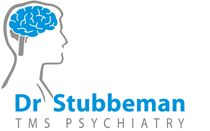
Category Archives: Research


Intensive Brain Stimulation Lifts Depression In 90% of Patients
Repetitive transcranial magnetic stimulation (rTMS) has been approved by the U.S. Food and Drug Administration (FDA) for the treatment of treatment-resistant depression since 2008.
Large-Scale Analysis of Interindividual Variability in Theta-Burst Stimulation Data: Results From the ‘Big TMS Data Collaboration’
Repetitive transcranial magnetic stimulation (rTMS) has been approved by the U.S. Food and Drug Administration (FDA) for the treatment of treatment-resistant depression since 2008.
The Future Is Now? Rapid Advances by Brain Stimulation Innovation
Repetitive transcranial magnetic stimulation (rTMS) has been approved by the U.S. Food and Drug Administration (FDA) for the treatment of treatment-resistant depression since 2008.
Transcranial Magnetic Stimulation
Repetitive transcranial magnetic stimulation (rTMS) has been approved by the U.S. Food and Drug Administration (FDA) for the treatment of treatment-resistant depression since 2008.
Consensus Recommendations for the Clinical Application of Repetitive Transcranial Magnetic Stimulation (rTMS) in the Treatment of Depression
Expert recommendations for the safe and effective application of repetitive transcranial magnetic stimulation (rTMS) in the treatment of major depressive disorder (MDD).
Concomitant Psychostimulant More Effective in rTMS Treatment for Depression
Concomitant medication use may impact rTMS treatment outcome.
Repetitive Transcranial Magnetic Stimulation (rTMS) Using Different TMS Instruments for Major Depressive Disorder at a Suburban Tertiary Clinic
Repetitive transcranial magnetic stimulation (rTMS) is a neurostimulatory technique used to modulate orbital frontal corticostriatal (OFC) activity and clinical symptomatology for psychiatric disorders involving OFC dysfunction.
Researchers Discover Novel Brain Mechanism Connecting Depression with Bad Sleep
It is also suggested that while transcranial magnetic stimulation is a growing area of research as a novel depression treatment, targeting the lateral orbitofrontal cortex with this technique could be a beneficial future treatment.
